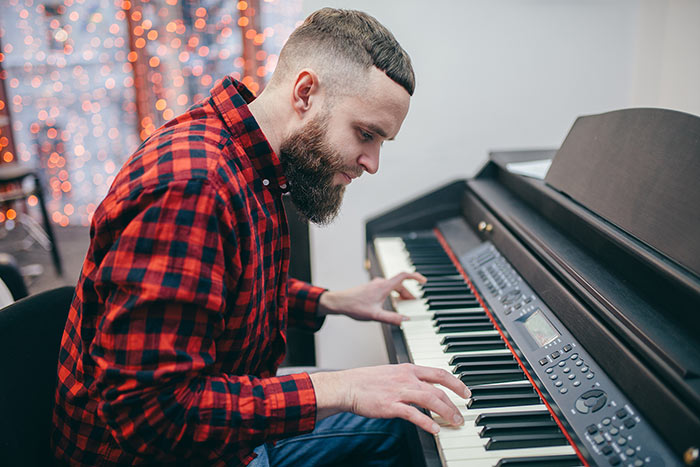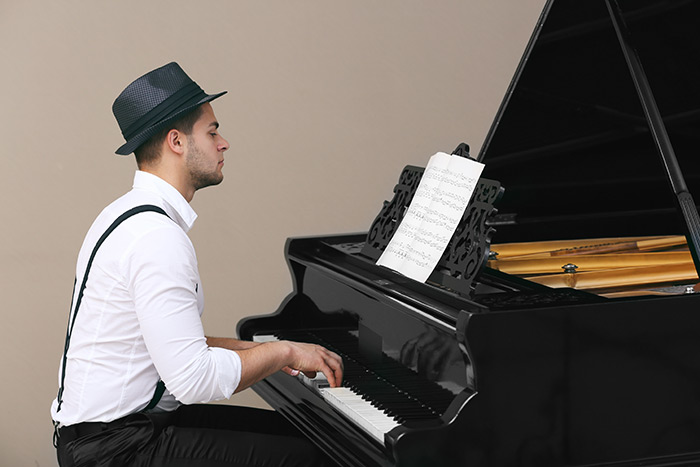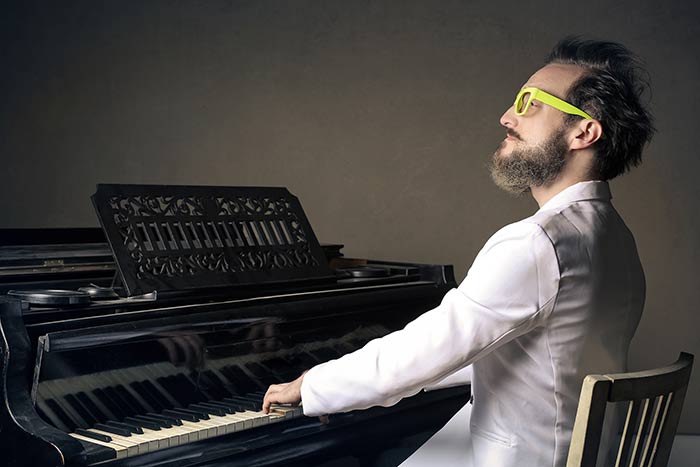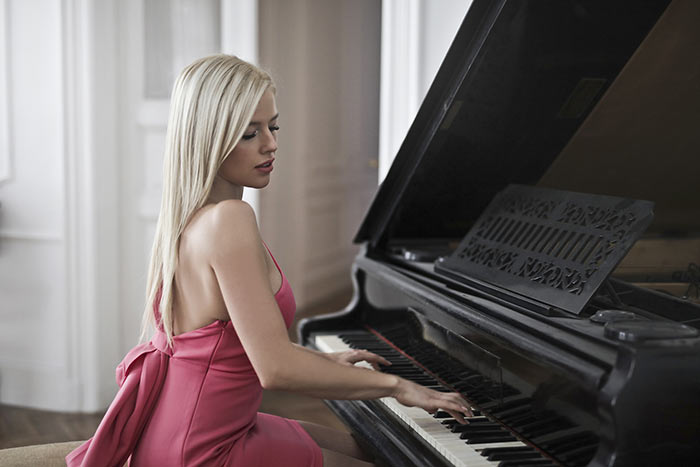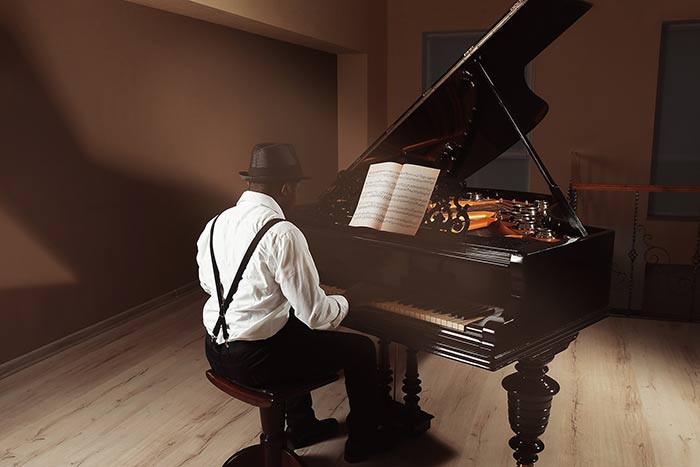Absolutely everything produces sound. Traffic, speaking, waterfalls, cash machines… and my personal favourite, people playing instruments and people singing.
Sound is defined as “vibrations that travel through the air or another medium and can be heard when they reach a person’s ear”. From my experience we take sound for granted. I am quite certain that the majority of us does not hear a sound and think “that is a traveling vibration”. Music, having sound production in its essence, is perhaps the most abstract of arts – we can not see it, touch it, it enters our ears and the rest happens inside us, quite differently for everyone, too.
It really is magical that we can create sound with our fingers. That is at the same time the bad news – frequently it is done not very consciously, and often the sound quality is not the first priority on the player’s agenda. Understandably so, in the beginning stages of learning, one is incredibly busy taking care of all 10 fingers playing multiple voices, pedalling, taking care of the rest of the body and our music intention, to list a few.
The topic of piano sound is ever present from the very first days of education of every pianist. The majority of instruments do not have the advantage of a visual answer as to what note you are playing, though this does vary, depending on the instrument. This is potentially the reason why pianists quickly get absorbed in technicalities of the instrument, learning a big number of pieces and studies and frequently “deal” with beautiful sound further down the education timeline, unless of course guided by a good teacher.
Developing a Sense of Sound
Developing a sense of sound is somewhat similar to wine tasting, (sorry kids!) it takes a great deal of subtlety in listening to the differences and trying several different things. Eventually you form a spectrum – a scale or a degree of your own sensitivity to what is quality and layered depth.
Perhaps the first step one could ask themselves is: how would I like to sound? What would be the main characteristics of my sound? Warmth, depth, resonance, richness, insert any adjectives of your preference. It is your identity as a musician so it is incredibly important to have this clarity and come back to that topic, daily or even in every contact with your instrument.
Now putting that into a clearer focus – having a sound that corresponds to a style of the piece/ composer that you are playing.
To cover the history of keyboard instruments and the sound from Bach onwards, is a topic covered extensively in the music literature and impossible to simply glance over. Researching this will give you many more answers in which directions to go in regards to your resonance, length, beginning and end of the note, articulation, the relation of fingers / arm usage. To put this into a clear parallel, let’s use English language. If we imagine the language used in London today, and language used in a theatre play by Shakespeare – we can see how not only vocabulary changed, but also did pronunciation, sentence structure, etc. It is up to an actor to control his or her mouth muscles, tongue and be able to perform through this “filter”.
There are several things that are inseparable from a good sound production, that I find helpful. I try actively (daily) to use all of these. Going back to these simple yet essential steps could guarantee you a higher awareness of your sound production.
1. (Goes without saying, but yet, somehow, it doesn’t!) Listening
This sounds like a big oversimplification yet in my own experience – recording myself, and listening to my colleagues, students etc – it is very easy to be consumed by multi-tasking. Frequently, it’s just the pleasure of playing a piece that we like that turns that auto-pilot mode on… Pedalling, technicalities, numerous voicings, characterisation, the list goes on as to what could be busying us. The true listening can happen once we truly separate from everything else and listen. It’s actually incredibly challenging to be objective while also being, well, that busy!
2. Objectivity
I find that recording myself really helps. I can objectively look at what I just did. Most of the time I find I am not doing enough, that I thought something is communicating or coming through- but the reality is that it was all along, going on in my head, to a much larger extent than what came through.
3. Physical Comfort / Mindfulness
Perhaps the very first step in not only sound production but also in anything that requires technical expertise… being physically comfortable and checking with yourself at all times to see if your body and mind (and emotional body too 😊) feels comfortable. Like in tennis, or playing drums, stiffness of any sort is likely to cause an injury. The right amount of tension and relaxation, effort and ease is probably the pilar to a quality sound production, and overall a key aspect of a healthy performance.
4. Visualise / Hear the Sound You Would Like to Achieve
This is yet another category that might be difficult at first – but do trust that it gets so much easier with time. Imagining anything to do with sound or the physicality of piano playing can really be challenging and takes time, but like any skill – it takes just a bit of dedication. Personally, I try to do this on several levels – before practising a bar or a phrase, and on a bigger scale – “running through” a piece in my head, 1 or several evenings in a row , prior to a performance. The great thing about practising the visualisation, or hearing sound in your head is that you can sit at the piano and simply test it, imagining then trying out etc. You get the immediate feedback from yourself and then it’s very satisfying to work further.
These are just a few tips on how to dive into the world of listening, and aware sound producing. I will share more tips in further articles.
In the meantime, happy practising!






